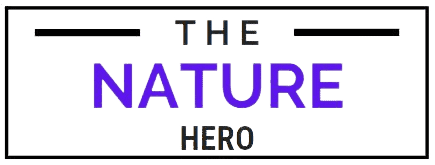Microsoft may be facing a seismic shift, with rumors of Xbox being discontinued, suggesting a switch to a multi-platform model.
This bold move could ditch exclusive games and consoles entirely, potentially rendering your beloved hardware obsolete.
Likewise, the potential move could impact fans, the gaming industry, and Microsoft’s revenue streams in console criteria.
Similarly, continue reading to learn about Microsoft’s next moves and the impact of Xbox being discontinued.
Table of Contents Show
Reason Behind Xbox Being Discontinued And Going Third-party
Microsoft is thinking about changing how Xbox works and planning to discontinue the Xbox Consoles.
Likewise, the consideration of shifting Xbox towards a third-party and discontinuing consoles could be driven by various factors.
It’s important to clarify that Microsoft has not officially confirmed discontinuing Xbox consoles or becoming entirely third-party.
However, Phil Spencer, Head of Xbox, announced an upcoming event where Xbox’s future plans will be discussed in more detail via X.

Similarly, the reasons that might lead Microsoft’ Xbox to opt for going third-party are:
1. Expanding Gaming Landscape
Firstly, the evolving gaming landscape presents an opportunity for Xbox to broaden its market reach.
This includes the surge in mobile gaming, advancements in cloud technology, and the emergence of diverse player demographics.
Microsoft aims to explore new segments of gamers who may not engage with traditional consoles by embracing a multi-platform approach.
2. Financial Considerations
The substantial costs associated with manufacturing, distributing, and marketing consoles prompted Microsoft for cost-saving measures.
Likewise, transitioning to a multi-platform model could alleviate these financial burdens for the company.
Further, allowing Microsoft to reallocate resources to unexplored areas of the gaming business.
Moreover, leveraging game sales across multiple platforms could open up new revenue streams for Microsoft.
3. Competition With Sony’s PlayStation
In response to Sony’s dominance in the console market, Microsoft seeks to revamp its strategy to compete in gaming world.
Similarly, by adopting a multi-platform approach, Xbox aims to attract a broader audience than just only consoles.
Further, it challenges PlayStation’s stronghold and bolsters its competitive position.
4. Rise Of Cloud Gaming
Microsoft’s heavy investment in cloud-based gaming, exemplified by initiatives like xCloud, underscores a shift towards cloud gaming.
This transition may involve reducing the emphasis on dedicated consoles in favor of streaming Xbox games directly to various devices.
Further, it aligns with the growing trend towards cloud-based gaming services and positions Xbox at the forefront of the industry.
5. Strengthening Gaming Services
Lastly, Microsoft’s Game Pass subscription service may offer a vast library of games across multiple platforms.
Similarly, it presents a key opportunity to solidify the company’s position as a leading gaming service provider.
Expanding Game Pass beyond Xbox consoles not only enhances accessibility for gamers but also reinforces Microsoft’s commitment.
Impact Of Xbox On Microsoft Going Third Party
The potential of Xbox going Third-party for reaching a broader audience and discontinuing Xbox is enticing.

However, the impacts of Microsoft’s Xbox going third-party and discontinuing Xbox consoles could be far-reaching and varied.
Further, the rumored shift of Xbox to a third-party model by Microsoft could present both opportunities and challenges:
1. Opportunities
Xbox games on other platforms like PlayStation, Switch, and PC could increase game sales and revenue.
Likewise, discontinuing console development could save Microsoft significant resources, which could then be allocated to other areas.
Similarly, players would no longer be tied to specific hardware, promoting choice and flexibility in gaming experiences.
Further, emphasizing cloud gaming services like xCloud could lead to increased adoption and accessibility of high-quality experiences.
Moreover, a multi-platform Xbox could introduce more competition in the gaming industry, potentially driving innovation.
2. Challenges
Popular titles like Halo and Forza might no longer be exclusive to Xbox, leading to the alienation of loyal fans and a decrease in brand loyalty.
Likewise, abandoning consoles entirely could shrink the overall console market.
Further, impacting hardware innovation and potentially leads to job losses within Microsoft and its manufacturing partners.
Similarly, Xbox may struggle to maintain its distinct brand identity without dedicated hardware.
Additionally, competing with established platforms like PlayStation in the gaming industry is harder.
Thirdly, increased competition from multi-platform availability could potentially drive up consumer prices.
The increments in price could impact affordability and accessibility for consumers.
Mainly, multi-platform development may challenge maintaining game quality and graphic consistency across different hardwares.


